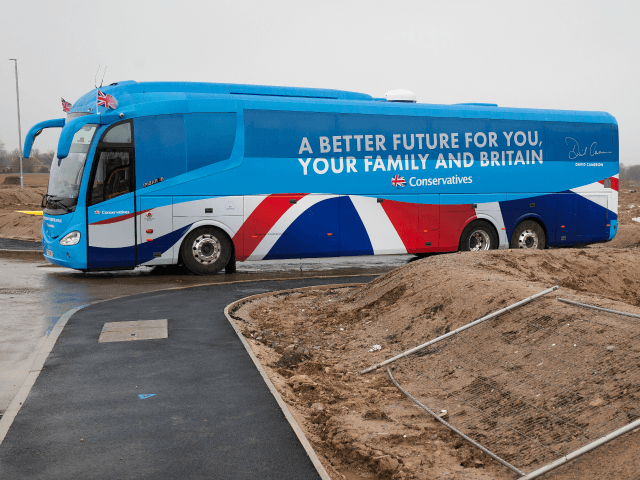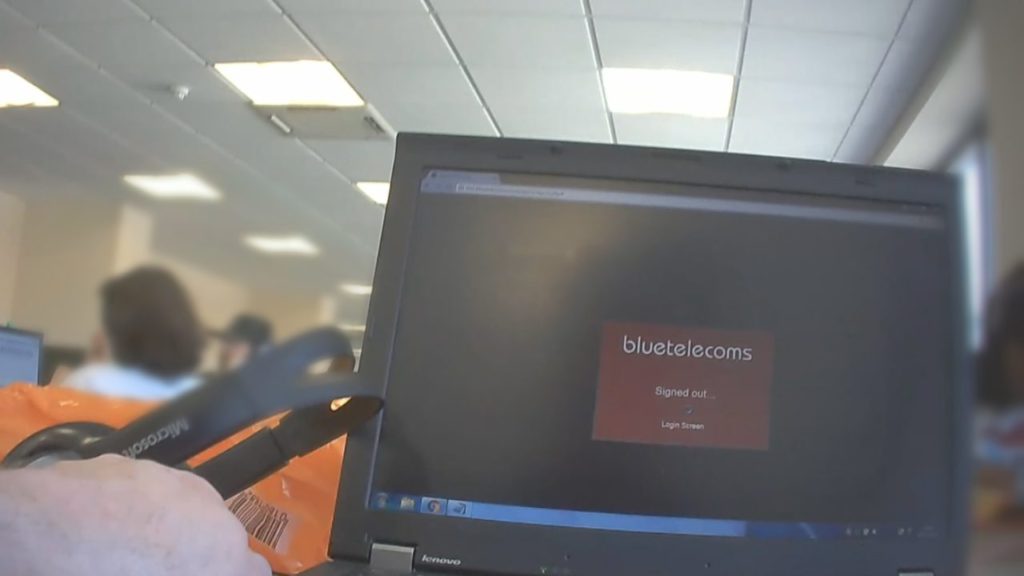The Conservative Party may have breached data protection and election laws during their desperate general election campaign by operating a secretive call centre targeting marginal voters.
An undercover reporter, working for Channel 4 News, took a job at Blue Telecoms in Neath, South Wales, in the run-up to the election, where up to a hundred people were employed each day on zero-hour contracts.
Claiming to work for a group called “Axe Research” – a company which is not registered and appears not to exist – workers were instructed to cold-call thousands of voters delivering messages scripted by the Tories, whilst claiming to be “independent market researchers”.
In the latter stages of the campaign, they also allegedly canvassed for individual candidates – something which is banned under electoral law – and conducted political cold calling to prohibited numbers — an act which is also banned.
According to the claims made by Channel 4, Blue Telecoms were paid by the Tories. If true, the arrangement would be in breach of data protection rules on transparency and privacy that insist those conducting research must be clear about who they are and what they will do with voters’ information.
Guidance from the Information Commissioner’s Office (ICO) states that market research companies must disclose: “Who you are; what you are going to do with their information and who it will be shared with.”
A QC specialising in information law told Channel 4 News that political parties had to ensure third parties working on their behalf followed the law.
“It’s an illegal practice, it’s prohibited under the legislation and in so far as it’s something which has tainted the overall result in favour of a political candidate, then it can void that result,” said Anya Proops.
Under the Representation of the People Act, it is also illegal to employ someone “for payment or promise of payment as a canvasser for the purpose of promoting or procuring a candidate’s election”.
Yet, on the day of the election, call centre employees contacted voters to promote individual candidates defending marginal seats.
Callers were also told to identify themselves as calling “on behalf of Theresa May and the Conservative Party” in the latter stages of the campaign and undecided voters were fed key Conservative campaign messages, including references to the Brexit negotiations and warnings about a hung parliament.
People who have actively said they do not wish to receive nuisance calls are only supposed to be called by those conducting genuine market research. However, when they were contacted by Blue Telecoms, they were given scripted, political messages. The Tories deny this.
A Conservative spokesman said: “Political parties of all colours pay for market research and direct marketing calls. All the scripts supplied by the party for these calls are compliant with data protection and information law.”

The Conservative Party election battle bus is seen between muddy fields during a general election campaign visit to a housing development in Chorley, northwest England, on April 3, 2015.
Sacha Lopez, the man running the call centre, said:
‘The scripts and lists of who to call and when to call were given to us by CCHQ [Conservative Campaign Headquarters] in London and were not influenced by my team. However I can advise we were engaged to conduct market research and polling for the Conservative party, and at no time were we engaged to conduct any form of marketing or canvassing by the party or its candidates.’
The potential scandal follows a series of flagrant breaches of election law by the Tories.
In South Thanet in 2015, in an effort to keep former UKIP leader Nigel Farage out of Parliament, they deployed huge resources to a local campaign, charging them to national expenses, resulting in Craig Mackinlay MP being charged with criminal offences.
The party was also slapped with a record £70,000 fine by the Electoral Commission for missing and unreported payments totalling more than £250,000 in 2014 and 2015. Much of the spending related to a so-called battle bus.

COMMENTS
Please let us know if you're having issues with commenting.